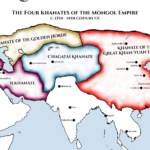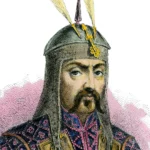From Illegitimate Son to King: William’s Unlikely Rise to Power
William the Conqueror, a figure shrouded in both triumph and controversy, dramatically altered the course of English history. Born an illegitimate son, his path to becoming the first Norman King of England was anything but certain. This article delves into the life and legacy of this remarkable figure, exploring his unlikely ascent, the transformative impact of the Norman Conquest, and his enduring mark on English society.
The Norman Conquest: A Turning Point in English History
William’s claim to the English throne stemmed from his familial ties to Edward the Confessor, the childless English king. However, his claim was disputed, leading to the monumental clash at the Battle of Hastings in 1066. This victory against Harold Godwinson, a powerful English nobleman, marked the beginning of the Norman era in England.
The Norman Conquest was not simply a change in ruler; it was a cultural earthquake. William, a shrewd strategist and ruthless leader, implemented significant changes that reshaped the political, social, and cultural landscape of England.
The Domesday Book and the Norman Legacy: A Lasting Impact
To consolidate his power and establish control over his newly acquired kingdom, William commissioned the Domesday Book in 1086. This comprehensive survey of landholdings in England was an unprecedented undertaking, providing an invaluable historical record of 11th-century English society and showcasing William’s administrative acumen.
The Norman influence on England extended far beyond the Domesday Book. William introduced a new social order based on feudalism, granting land to his Norman followers in exchange for loyalty and military service. This system, along with the influx of Norman nobles, transformed the English aristocracy and power structures.
Moreover, the Norman Conquest ushered in a linguistic shift. Norman French, the language of the court and administration, gradually intertwined with Old English, ultimately giving rise to Middle English and leaving an enduring mark on the language spoken today.
Is Queen Elizabeth II Related to William the Conqueror?
The legacy of William the Conqueror continues to resonate, even in the modern era. One intriguing aspect of this lasting impact is the genealogical link between William and Queen Elizabeth II.
Surprisingly, the answer is yes. Queen Elizabeth II is a direct descendant of William the Conqueror, though separated by over 900 years and more than 20 generations. This lineage underscores the enduring impact of the Norman Conquest on the British monarchy, connecting the present-day sovereign to a pivotal moment in history.
Tracing this royal bloodline is a complex endeavor, involving a tapestry of royal marriages, shifting lines of succession, and even the occasional illegitimate birth. However, Queen Elizabeth II’s connection to William is particularly direct, further emphasizing her place within this vast historical narrative.
Unraveling the Conqueror’s Legacy: A Complex and Enduring Figure
William the Conqueror remains a controversial figure, often depicted as a ruthless conqueror. However, his reign also laid the groundwork for a more centralized and powerful English monarchy. He introduced reforms, stabilized the kingdom, and left behind a legacy that continues to shape England today.
From his unlikely rise to power to the lasting impact of the Norman Conquest, William the Conqueror’s story is a testament to ambition, ruthlessness, and the profound impact one man can have on the course of history.
- Unveiling Bernhard Caesar Einstein’s Scientific Achievements: A Legacy in Engineering - July 15, 2025
- Uncover who is Jerry McSorley: CEO, Family Man, Business Success Story - July 15, 2025
- Discover Bernhard Caesar Einstein’s Scientific Contributions: Unveiling a Legacy Beyond Einstein - July 15, 2025















